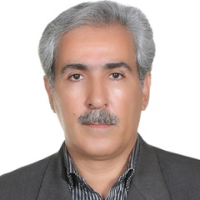Paradigm model of decentralization of Iranian education system
In order to identify decentralization strategies, by presenting a paradigm model of decentralization in the Iranian education system, this study seeks to determine the effective causal, contextual and intervention conditions in determining the levels of centralized and decentralization in the Iranian education system, based on lived experiences and studies of experts and senior and middle managers of education since 1978 until now.
This qualitative research has been performed using the Grounded theory approach. From the target community, including education experts and senior managers, fifteen managers and 10 experts were purposefully selected. Data were collected through semi-open interviews. Interviews were recorded and themes, concepts, and categories were identified in open coding. In axial coding, concepts and categories were categorized under causal conditions, intervention, context, strategies and consequences, and by determining the axial category, selective coding was performed.
Iranian Education has a centralized, uncoordinated and quantitative structure. This system prescribes the same programs for all students across the country, with diverse climatic, cultural, and social conditions that do not meet individual and societal needs and are ineffective. All experts and managers agree on the need to decentralize this system. But conditions such as; Politicization, resistance of headquarters power centers, staff apathy, economic weakness, political conditions, dependence on public budget, fear of ethnicity in decentralization, the political selection of non-professional managers, the instability of management and regulations, etc., make decentralization plans fail. Strategies such as the formation of a strategic council as a lever of governance power in support of administrative decentralization, assuring managers and staff of their role in a decentralized system, strengthen the legal status of provincial, district and school councils, Preparation strategies for designing and preparing indigenous educational programs and content alongside national programs in the framework of national interests; formation and strengthening of scientific associations and organization of the teacher system, empowerment of staff, Preparation of document and action plan of regions and provinces based on needs assessment, Technical and financial support for disadvantaged areas and the use of indigenous capabilities for gradual decentralization can improve the quality of education and the role of this system in the development process.
- حق عضویت دریافتی صرف حمایت از نشریات عضو و نگهداری، تکمیل و توسعه مگیران میشود.
- پرداخت حق اشتراک و دانلود مقالات اجازه بازنشر آن در سایر رسانههای چاپی و دیجیتال را به کاربر نمیدهد.


